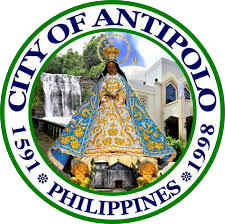THE ROAD TO CITYHOOD
Cityhood marked the beginning of the period of Antipolo’s greatest growth and development. From being one of the municipalities of Rizal Province, Antipolo has become one of the fastest growing cities in the country today, based on annual income and population.
Antipolo would not have become a city if not for the determined effort of then Congressman Gilberto “Bibit” Duavit, Sr, who started the long process for Antipolo’s cityhood in 1995 with a luncheon meeting also attended by political kingpins of the province. Present were then Rizal Congressmen Emigdio “Ding” Tanjuatco, Jr., Governor Casimiro “Ito” Ynares Jr., Antipolo Mayor Daniel Garci a. and then the Department of Interior and Local Government undersecretary Victor Sumulong.
It was also discussed that the whole province of Rizal, under Ynares had to back the move to convert Antipolo into a city. Moreover, the support of the Antipolo Municipal Government, under Garcia had to be earned because if a law was passed and a plebiscite held, then, the local government of Antipolo would spend for the exercise.
With the merits of cityhood presented, the political leaders of Rizal were convinced of the need for cityhood. In 1996, Duavit filed the bill for Antipolo, a municipality under his congressional district, to become a component city of Rizal. Legislation is a long and tedious process and to expedite the passage cityhood bill, Sumulong, with the backing of the two congressmen of Rizal, sought the help of key personalities in Congress.
Sumulong and Duavit first talked to Speaker Jose De Venecia and were able to get him on their side. Then, they convinced the Chairman of the House Committee on Local Government, Cong. Ciriaco Alfelor. With the support of the Speaker and the committee chairman, the cityhood bill passed the committee level and then shortly, at the plenary.
But for the bill to become a law, it must also pass the upper house of Congress, the Senate. Key Senators had to be sold to the idea of Antipolo’s cityhood. Sumulong talked to Senate President Neptali Gonzales as well as to Majority Floor Leader, Senator Kit Tatad who set the agenda. Then, he sought the help of Senator Tito Sotto, the chairman of the Senate Committee on Local Government. Sumulong finally got the support of the Senate leaders and the cityhood bill mustered the needed number of senators and was passed by the Senate in record time.
On February 13, 1998, President Fidel V. Ramos signed into law the bill making Antipolo City a component city of Rizal province.
Difficult as the legislative hurdle was, getting the approval of the people of Antipolo proved to be an equally difficult task. The Commission on Elections (Comelec) scheduled a plebiscite on March 23, 1998, but, there was an objection filed against it. Then, Sumulong, an accomplished lawyer, argued the merits of holding the plebiscite before Comelec Chairman Bernardo Pardo. The Chairman agreed with Sumulong’s argument and ruled that the plebiscite shall be held April 4 on the same year. But another petition was filed to stop it again, this time before the Supreme Court.
Sumulong had to defend the importance of the cityhood of Antipolo before the highest judicial body. He argued the case before Chief Justice Andres Narvasa, who later agreed in favor of the merits of his arguments and allowed the plebiscite to take place on April 4, 1998.
The result was an overwhelming victory with cityhood prevailing by a ratio of 8 to 1. Antipolo became a component city of Rizal province and started its march to progress and development.
The road to cityhood of the pilgrimage capital of the Philippines – Antipolo City -has been a long and winding one beset by obstacles on its path. But, the combined efforts and noble gesture of Sumulong, Ynares, Duavit, and Tanjuatco have surmounted the obstacles of cityhood. The precedent-setting act of Ynares, Duavit and Tanjuatco, who hailed from other towns, is considered an unparalleled statesmanship. This monumental act will remain indelibly marked in the hearts of all Rizalenos, especially the people of Antipolo.

